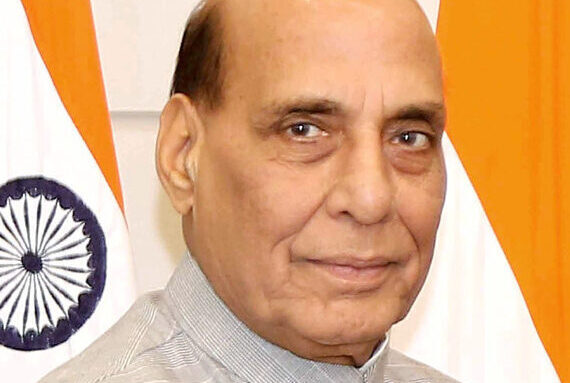India snubs SCO statement after Pakistan, China attempt to distort terror narrative and deflect blame
India refused to endorse a joint statement on terrorism at the Shanghai Cooperation Organisation (SCO) defence ministers’ summit in Qingdao, rejecting what it described as a clear attempt by Pakistan and China to manipulate the language and deflect attention from cross-border terrorism.
Defence Minister Rajnath Singh made India’s objections clear, refusing to sign the document after discovering that Pakistan—backed by the summit’s host China—had insisted on omitting references to well-documented terror attacks and tried instead to include controversial claims about Balochistan and Kashmir.
The SCO, a regional bloc of 10 member states, operates on a consensus-based model. As a result, India’s refusal effectively blocked the adoption of the statement. The overnight negotiations failed to bridge the differences, with India standing firm on its longstanding position that terrorism cannot be contextualised or excused.
“There can be no double standards when it comes to terrorism,” Singh said during the summit, which was attended by his Pakistani and Chinese counterparts, Khawaja Asif and Admiral Dong Jun. “Those who perpetrate, organise, finance or sponsor terrorist acts—including cross-border terrorism—must be held accountable.”
India objected strongly to Pakistan’s demand to include references to the Jaffar Express hijacking in Balochistan and broader claims of terrorist activities in the province. Pakistan has routinely accused India of supporting the Baloch insurgency, charges New Delhi has denied as politically motivated and baseless.
Even more contentious was Pakistan and China’s joint effort to exclude any mention of the Pahalgam massacre, a deadly attack in Jammu and Kashmir attributed to Pakistan-based terrorists. Indian officials viewed this as an unacceptable attempt to whitewash cross-border terrorism and shift the narrative toward internal matters in Pakistan.
Embed from Getty ImagesSources present at the summit told The Times of India that Pakistan’s insistence on including Balochistan and J&K references was backed by China in its capacity as the current SCO chair. This led to a high-stakes diplomatic standoff within the group, with India taking a firm stance to protect its national interest and regional credibility.
A senior Indian official said, “Pakistan, with China’s support, wanted the document to reflect its own grievances while ignoring the real and persistent threat of cross-border terrorism. That is not something India can ever be party to.”
The Ministry of External Affairs (MEA) confirmed India’s position, stating that the proposal was “objected to by one particular country” and that India could not endorse a document which undermined the very essence of international consensus on terrorism.
The failed attempt to push through the altered statement is being seen as a diplomatic victory for India, which has long campaigned for the SCO and other multilateral forums to adopt a zero-tolerance approach to terrorism. Indian analysts noted that allowing Pakistan’s version of events to enter the SCO’s official language would have severely damaged India’s standing and undermined efforts to isolate state-sponsored terror.
This is not the first time India has had to take a stand within the SCO. Similar differences have emerged in past meetings when Pakistan attempted to use the forum to internationalise bilateral disputes, especially over Kashmir.
Despite the deadlock, Singh reiterated India’s commitment to regional cooperation and stability. India will continue to work with SCO partners to combat terrorism, extremism and radicalisation. But we cannot accept a narrative that excuses or legitimises acts of terror,” he said.
The SCO summit now moves to its next phase without a joint declaration on counter-terrorism—a stark reminder of the geopolitical fault lines that still divide member states, especially when it comes to Pakistan’s role in the region.
